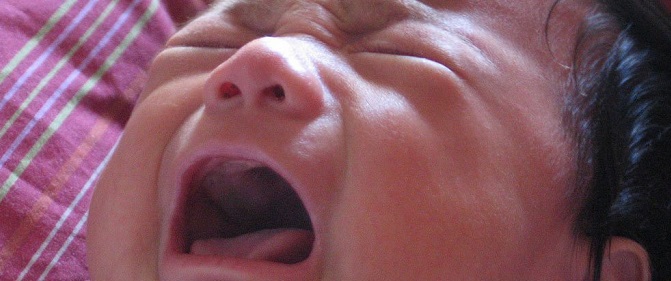Letting your baby cry itself to sleep won`t harm its health, new research finds

The parents and babies participating in the study were split into three groups: the crying-it-out group (technically known as graduated extinction), a `bedtime fading` group (where parents stay in the room until the baby dozes off, and bedtime is gradually set later and later), and a control group, where no sleep training was attempted.
By the end of the study, the graduated extinction group was beating the bedtime fading group on three counts: the amount of time taken to fall asleep -by 3 minutes on average; the number of times babies were waking up in the night; and total sleep time.
It`s worth noting that graduated extinction does not involve leaving a baby alone crying for hours on end, but rather slowly increasing the amount of time a crying baby is left alone. In the schedule used for this study, this `wait time` built up from 2 minutes to 35 minutes over the course of a week.
"It`s natural for parents to worry about having their babies cry at bedtime," says psychologist and study leader Michael Gradisar from Flinders University in South Australia. "While it`s well documented that sleep deprivation can cause family distress, including maternal depression, we`re hoping these results will add another element to how parents view their responses and how they manage their own and their babies’ sleep behaviour."
Based on cortisol samples taken from the babies during the experiment, there were no significant differences in terms of baby stress levels, and nor did the parents report increased stress or differences in the level of parent-child attachment.
That said, Gradisar himself admits that further independent studies are required to validate the findings of this relatively small study, so we can understand more about how these techniques work.
So to be clear, it`s always best to speak to your doctor and get personalised advice before changing the way you look after your baby. This study only looked at 43 infants, and the researchers behind it want to see larger, more diverse analysis of these techniques over a longer term before making any hard and fast conclusions.
"A combination of using bedtime fading first, then moving on to graduated extinction could be another good approach," said Gradisar. "If a child is waking up several times a night, then there is now some more evidence that graduated extinction is a technique that may not be harmful to their child."
Psychologist Marsha Weinraub from Temple University in the US, who wasn`t involved in the research, said the study was helpful for parents.
"When you are waiting for your baby to go to sleep, every minute counts," she told Carina Storrs at CNN. "Parents have been told by some experts that children`s stress levels will increase over time with these techniques and they will have behavioural problems. This study shows very clearly, which I think is the first to do so, that there are no [harmful] effects on children`s stress levels."















































